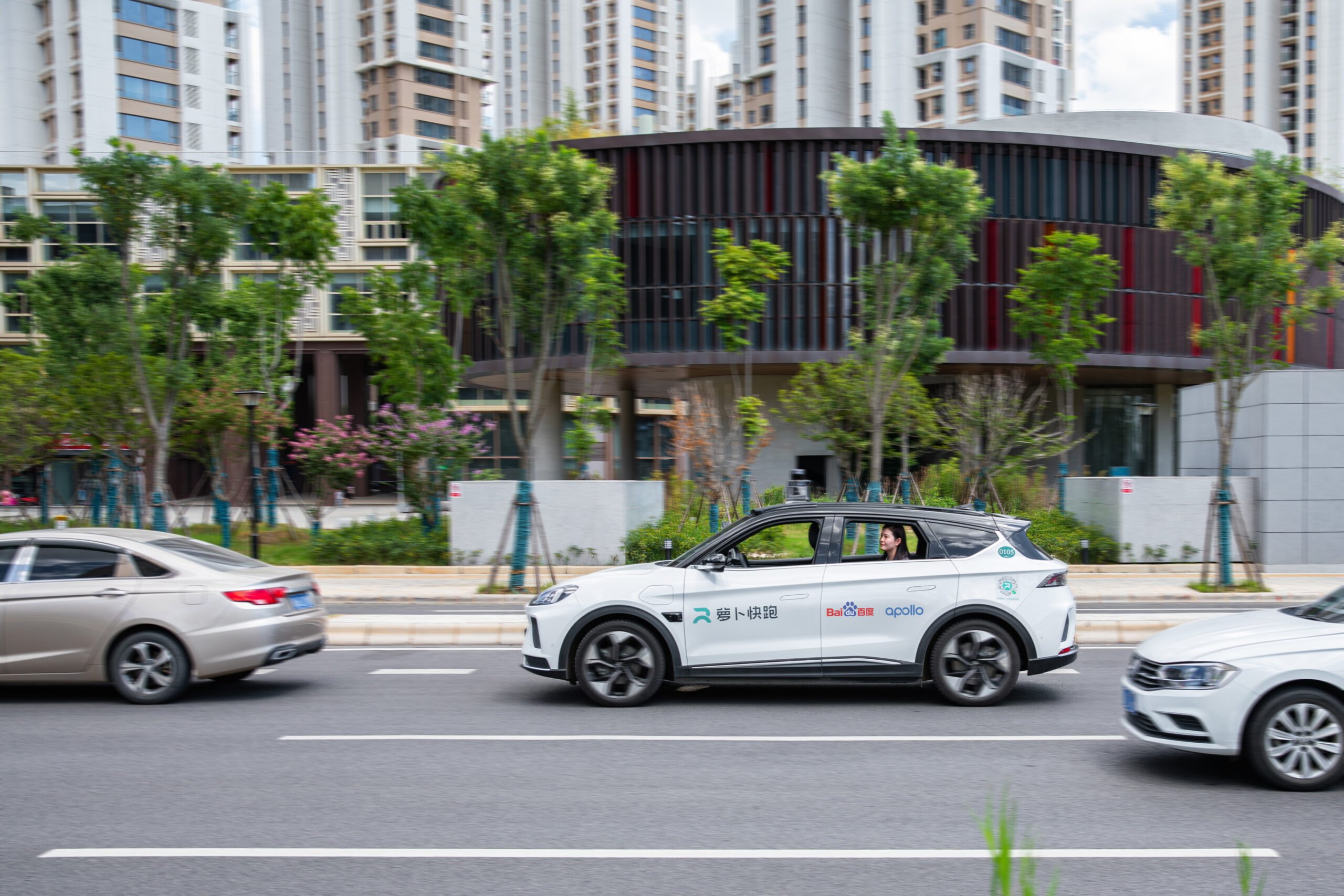- Baidu’s Apollo Go robotaxi expansion into Southeast Asia expected to target Singapore and Malaysia.
- Chinese robotaxi firms lead globally with 11+ million rides, US rivals focus on domestic markets.
As US and Chinese companies intensify their battle for global robotaxi leadership, Baidu’s Apollo Go robotaxi expansion into Southeast Asia appears to be gaining momentum, with the Chinese tech giant reportedly eyeing regional deployment as early as late 2025.
According to a recent Wall Street Journal report, Baidu’s robotaxi unit is planning to expand into Southeast Asia as soon as the end of this year, with Singapore and Malaysia identified as primary target markets in the region. A person familiar with the matter told the publication that these markets align with the company’s broader international strategy.
The potential robotaxi expansion comes as Chinese autonomous driving companies adopt what industry observers describe as a “dual-pronged approach” to achieve profitability and navigate geopolitical tensions.
As noted by Nikkei Asia in a recent report examining how “Baidu, Waymo and others eye overseas markets as political tensions run high,” uncertainty surrounding US-China relations has made the Middle East, Southeast Asia, and Europe increasingly attractive alternative markets for Chinese firms.
The market leadership battle intensifies
Baidu’s Apollo Go recently announced its service has completed more than 11 million rides, surpassing Waymo’s reported 10 million, marking a milestone in the global robotaxi competition.
The Chinese company operates the largest fleet of the Chinese robotaxi companies, with more than 1,000 cars in operation globally, according to a WSJ report. Chinese robotaxi rides cost about 35 cents per mile compared with $2 in the US, according to a 2025 report [PDF] by US-based investment firm ARK.
The cost advantage stems from government subsidies, comprehensive supply chains, and lower labour costs, giving Chinese firms an edge in price-sensitive markets. While China remains Apollo Go’s main market, the company has already announced expansion plans in the Middle East.
Baidu outlined plans in March to deploy “dozens” of robotaxis in partnership with UAE-based Autogo in Abu Dhabi with a goal of starting commercial operations by 2026, according to Reuters.
Goldman Sachs sees massive growth potential
Investment bank Goldman Sachs forecasts significant growth in the global autonomous vehicle market, projecting that a global fleet of several million commercial autonomous vehicles used for ride-sharing could be operational by 2030. Currently, China’s robotaxi fleet – the world’s biggest – stands at about 1,700 vehicles.
The research firm estimates the Chinese robotaxi market could grow to $47 billion in value by 2035 from an estimated $54 million this year. The growth trajectory is expected to be driven by cheaper hardware and algorithm development, as well as declining operating costs for fleet owners.
Goldman Sachs analysts believe Apollo Go, Pony AI, and WeRide will likely remain among the major players due to high technological barriers to entry and their leading advantages in algorithms, data, and mapping capabilities.
Regional competition heats up
The Southeast Asian robotaxi expansion strategy reflects broader competitive dynamics in the autonomous driving space. WeRide said it has begun “public operation” of its robotaxi GXR minivan in several Chinese cities as well as Zurich and Abu Dhabi, while also partnering with Uber to expand into 15 cities over the next five years.
Meanwhile, US companies are focusing on domestic scaling. The Alphabet-owned Waymo, which launched the world’s first fully driverless service in Phoenix in 2020, remains the largest operator in the US. However, American firms have faced challenges, with General Motors halting investment in Cruise after spending $10 billion, citing high scaling costs.
Technology race continues
As the industry moves toward commercial viability, Chinese companies appear to have gained operational experience advantages. Baidu’s Zhang said the company was confident it could do well abroad, citing its claim that its vehicles had completed 10 million trips in China as of March without a serious traffic accident.
The company has been running its Apollo Go robotaxi services commercially in several Chinese cities since 2022, with vehicles operating at Level 4 autonomy – meaning they are driverless but restricted to certain approved areas.
However, challenges remain for all players in the space. Even at the current level of automation – where vehicles can operate in driverless modes only in certain government-approved areas – robotaxis would commercially scale only by 2030, according to a McKinsey report.







